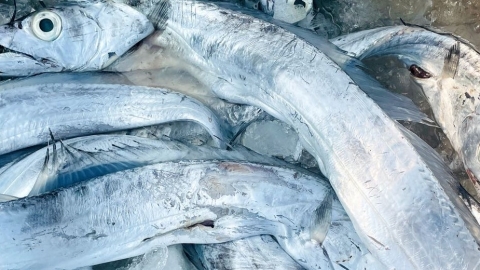Can liver cancer patients eat hairtail fish?
Generally, whether patients with liver cancer can eat ribbon fish depends on their specific condition and physical health. If there are discomforts or special dietary restrictions, it is recommended to consult a doctor promptly. The detailed analysis is as follows:

If the liver cancer patient's condition is stable, without significant liver dysfunction, gastrointestinal bleeding, hepatic encephalopathy, or other complications, and if digestive function is normal, they may consume ribbon fish in moderation. Ribbon fish is rich in high-quality protein, and its fat mainly consists of unsaturated fatty acids, which are easily digested and absorbed by the body. This helps supplement essential nutrients and enhance immunity. It is recommended to limit intake to 50–100 grams per serving, using light cooking methods such as steaming or boiling in soup.
However, for patients with severe conditions—such as advanced liver failure, active gastrointestinal ulcer bleeding, acute episodes of hepatic encephalopathy, or significant symptoms of digestive disturbances like severe nausea, vomiting, or bloating—eating ribbon fish is not advised. In these cases, impaired liver metabolism and reduced digestive capacity mean that the protein and fat in ribbon fish could increase the burden on the liver and potentially irritate the gastrointestinal tract, triggering or worsening symptoms. Dietary adjustments should follow medical advice under such circumstances.
Prior to consumption, ribbon fish should be thoroughly cleaned, with internal organs and scales completely removed, ensuring the fish is fresh and not spoiled. Avoid using excessive oil or spicy seasonings during cooking to minimize bodily strain. Eat slowly and chew carefully to prevent choking on fish bones. Patients with concurrent hyperuricemia should limit intake, as ribbon fish is considered a moderate-to-high purine food. After eating, monitor for any adverse reactions; if symptoms such as abdominal pain, bloating, or diarrhea occur, discontinue consumption immediately and consult a physician.







